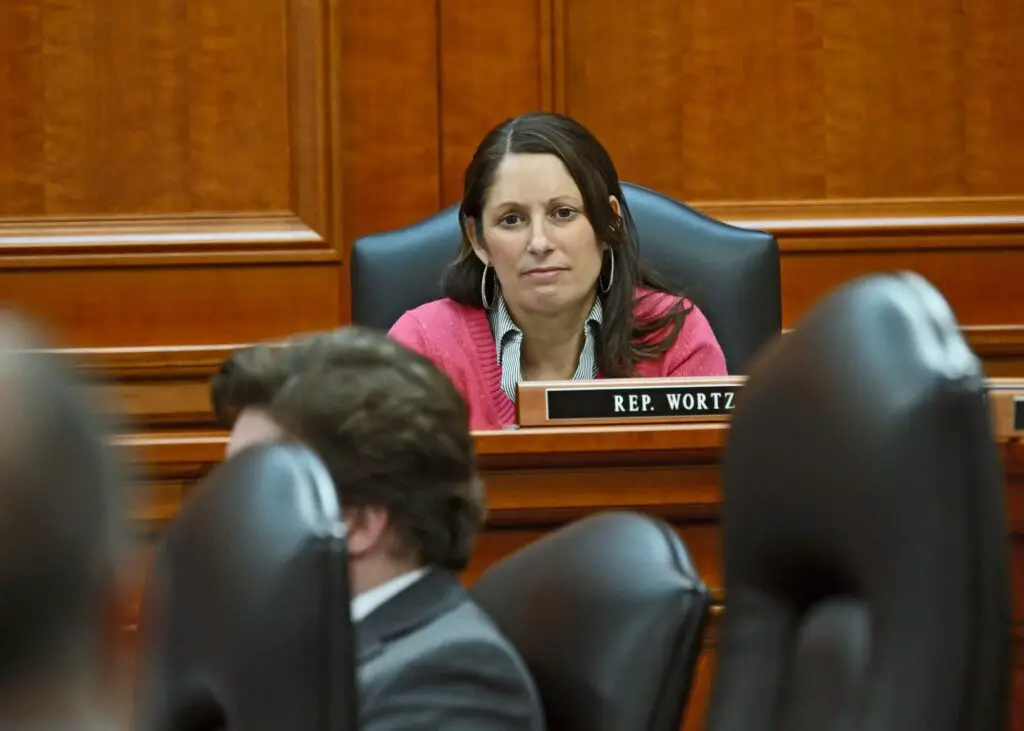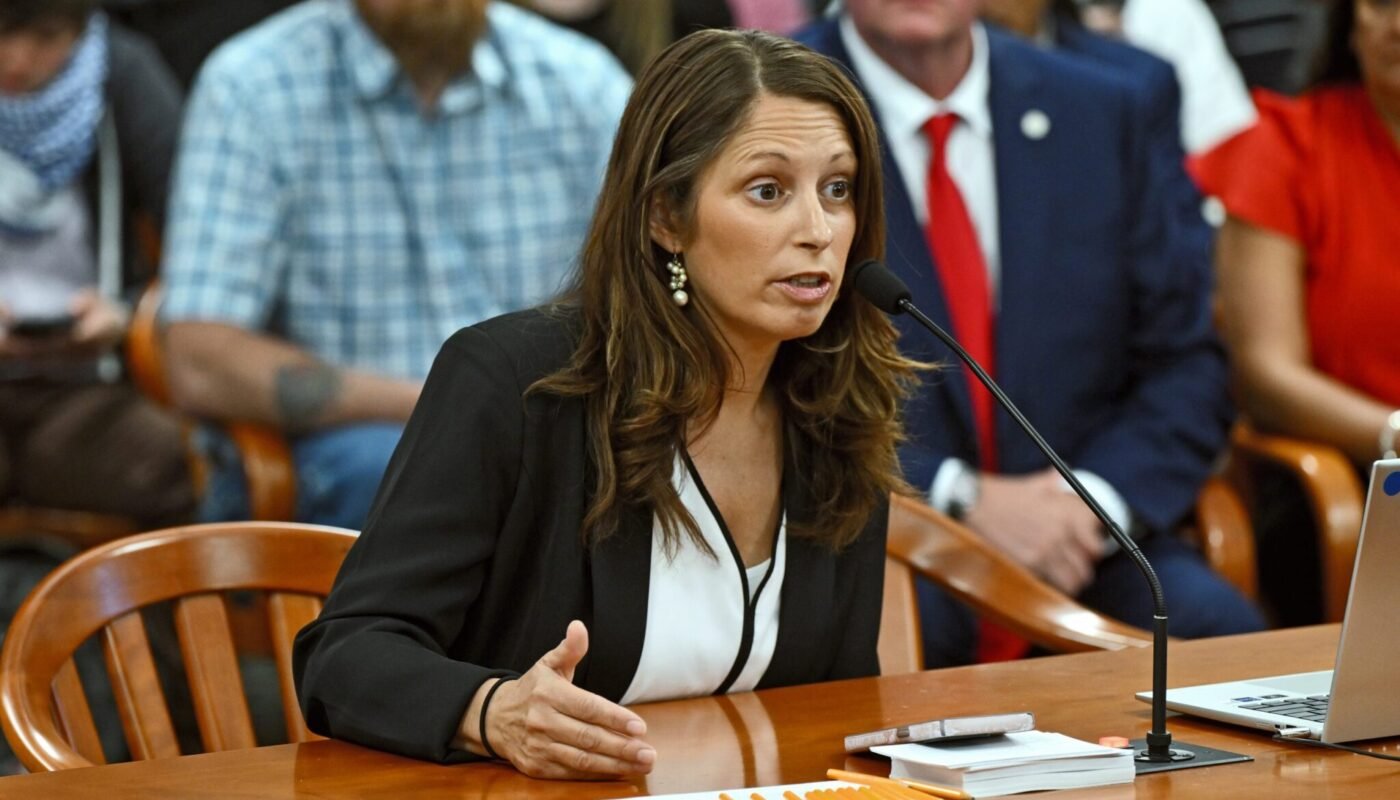House Republicans propose a record K-12 Michigan education funding increase while stripping categorical grants, triggering sharp debate over future school aid distribution.
House Republicans Propose Historic Increase in Per-Pupil Education Funding

LANSING, Mich. — June 13, 2025 — In a move that marks a sharp policy shift in Michigan’s long-debated education funding system, House Republicans unveiled and advanced a K-12 education budget plan on Wednesday that raises per-student funding to a record $12,000, while simultaneously eliminating long-standing categorical grant programs.
The proposal, led by Rep. Jennifer Wortz (R-Quincy), positions itself as a simplification of Michigan’s school aid distribution formula by removing what supporters label as “wasteful red tape” and redirecting resources directly to school districts based on enrollment headcounts.
“This budget plan ends the wasteful spending on dysfunctional systems that has defined our school aid budgets for years,” Wortz said in a statement following Wednesday’s vote. “By eliminating categorical grant funding and putting those resources directly into per pupil allowance, we are putting taxpayer dollars back in the hands of the schools that know the varying needs of their students the most.”
Michigan Education Funding Proposal Surpasses Governor and Democratic Budget Recommendations
The House Republican package surpasses both the education funding levels proposed by Governor Gretchen Whitmer and House Democrats earlier this year. Whitmer’s original budget recommendations sought to increase per-pupil funding to $10,500, while House Democrats proposed an increase to approximately $11,300. The Republican plan’s $12,000 allocation represents the highest proposed per-student funding in Michigan’s history.
According to data from the Michigan Department of Education, the state’s current base per-pupil funding stands at $9,608 for fiscal year 2024. If enacted, the new Republican-led increase would represent a 24.9% year-over-year jump—far outpacing recent education budget growth rates.
Shift From Categorical Grants Sparks Debate Over Equity and Local Control
A central feature of the Republican plan is the elimination of categorical grants—funding that is traditionally earmarked for specific programs such as special education, literacy intervention, mental health services, school safety, and at-risk student support.
“The standard in Lansing for decades has been to pass budgets with huge portions coming with strings attached and wrapped in red tape,” Wortz said. “Our new budget plan takes the common-sense, but apparently radical, approach: simply allocate funding based on the number of students enrolled and let the schools decide how to spend it.”
Critics of eliminating categorical funding warn that the removal of targeted grants may disadvantage districts with higher populations of special needs students, English language learners, or economically disadvantaged communities who have relied on supplemental support to meet state and federal education standards.
“Michigan’s funding formula already struggles to address equity gaps, and removing targeted grants would leave many vulnerable students without necessary support,” said Dr. Sarah Reckhow, associate professor of political science at Michigan State University, in a February 2025 interview on school finance reforms (MSU Education Policy Brief, Feb. 2025).
Supporters of the Republican plan argue that local school boards are better positioned to allocate funds according to community needs without state-mandated restrictions.
“Public schools now have the opportunity to do what they have been asking to do for years; they can now use funding to meet the needs of their community, whether that be providing meals, transportation, or mental health services,” Wortz stated. “The outdated one-size-fits-all attitude towards education has failed. Our new approach empowers schools to capably utilize the functioning educational framework they have had all along.”
Michigan’s Budget Fight Reflects National K-12 Funding Debates
Michigan’s education funding debate mirrors broader national disagreements over how best to distribute school aid. The longstanding battle between formulas based on enrollment headcounts versus categorical funding formulas has been central to school finance litigation and policy debates across multiple states.
According to the National Conference of State Legislatures (NCSL), at least 38 states currently utilize some form of categorical or weighted funding to address student needs that exceed baseline costs.
The Michigan plan’s elimination of categorical grants stands out nationally, and may set up significant legislative negotiations as it advances to the state Senate. With a divided state government—Democrats holding the Senate and governorship, Republicans controlling the House—the final shape of the K-12 budget remains highly uncertain.
Quincy Roots Inform Wortz’s Education Policy Approach
Rep. Wortz, first elected to the House in 2022, previously served on the Quincy Community Schools Board of Education, where she developed her views on education funding. She described her school board experience as a front-row seat to what she characterized as Lansing’s “frustrating” approach to aid distribution.
“I have been a longtime advocate for funding students over broken systems, and I’m pleased to see us moving in that direction with this new budget plan,” Wortz said.
Negotiations and Opposition Expected as Budget Season Heats Up
The Republican-led House budget now moves to the state Senate for further debate. Senate Democrats, aligned with Governor Whitmer, have signaled resistance to any major overhaul that dismantles Michigan’s current categorical grant system.
As the fiscal year 2026 budget deadline approaches, negotiations between the chambers are expected to intensify. Michigan’s school districts, education associations, and parent groups are closely monitoring how these changes may affect school operations heading into the next academic year.
Read More Interesting Feature Stories From ThumbWind
- Michigan Feature News Stories – Unveiling the diverse and vibrant people, captivating places, and remarkable events that come together to make the Great Lake State unique.
- Strange Political News – A sarcastic take on official news from around the U.S., exploring the absurdities that often arise in the political landscape while providing a humorous perspective on current events and highlighting the quirks of politicians and policies.
- Michigan Hometown News – News and events from Michigan’s Upper Thumb region worth knowing, including local stories, impactful interviews, and updates on community happenings that shape the culture and lifestyle of the area.
Your Turn – Like This, or Hate it – We Want To Hear From You
Please offer an insightful and thoughtful comment. We review each response. Follow us to have other feature stories fill up your email box, or check us out at ThumbWind News




